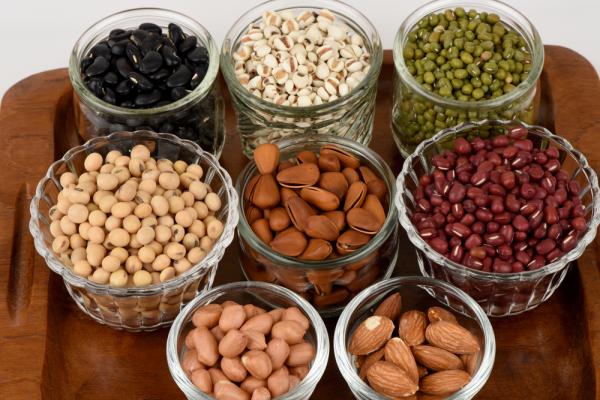Every so often someone comes up with a new way to impugn our diets. Whether it's red meat, sugar-sweetened beverages or artificial sweeteners, there's a danger we must avoid to attain or maintain our health. But could it be that those foods touted as the healthiest are really bad for us? We're talking about legumes, beans, and nuts — items that are high on the list of vegetarians' sources of protein and suggested for even the most omnivorous among us for their fiber, vitamins and mineral content. Well, according to a Dr. Steven Gundry, these foods are actually dangerous because they contain lectins — plant proteins that can cause digestive problems and worse.
First, a few words about Dr. Gundry. He is a cardiothoracic surgeon — in fact was chairman of cardiothoracic surgery at Loma Linda Medical Center, which position he left to concentrate on his business of promoting food-based health, according to an article in The Atlantic by James Hamblin. Hamblin sees Gundry's warnings about lectins as perhaps the impetus for a new diet craze, once gluten-free wears out. These warnings extend to grains, legumes, nuts and vegetables such as eggplant, potatoes, tomatoes, and peppers — the foods that mainstream nutritionists are encouraging us to eat.
So, what about lectins? Are they as bad as Gundry says? Some certainly are — take ricin —it's a deadly lectin found naturally in castor beans — but which can be inactivated by cooking. Lectins as a class are proteins that bind sugars and other carbohydrates — including those on cell membranes, and via that mechanism can cause cells to stick together. In fact, one of the lectins found in red kidney beans — phytohaemagglutinin — can cause red blood cells to stick together.
Lectin ingestion can cause damage to the lining of the intestine and flatulence —and nausea, diarrhea, and vomiting can ensue. But lectins can be inactivated by cooking, in which case they can be consumed safely, so there's a good reason to avoid raw beans and such. Sprouting seeds and some beans can also reduce the lectins present.
So since humans, on the whole, don't usually consume their beans and legumes raw, and even nuts and grains are toasted/baked/roasted or otherwise treated, why the new concern about lectins?? Follow the money. When you have a fully accredited physician who steps out of his field of expertise to advise people on what to eat and what not to eat — and who basically implies or says that eating his way will cure most if not all human ills — well, see if he also sells supplements and a book or two to help you achieve this nirvana.
What we say is that yes, lectins can cause digestive or other ills. And yes you need to cook your beans before consuming them. But don't eliminate foods that are on the whole beneficial because they could be problematic under the wrong circumstances.




